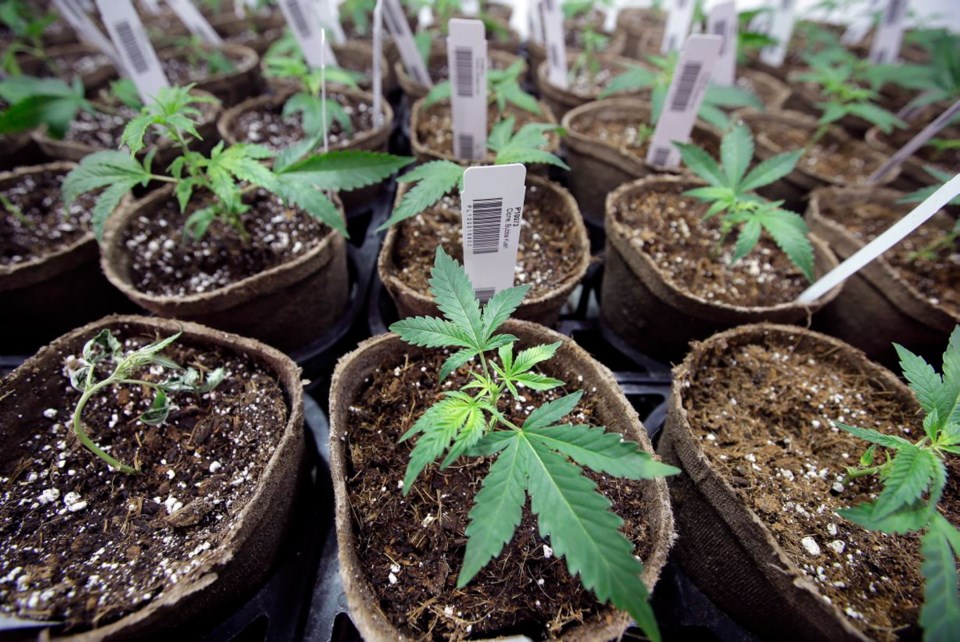B.C. will allow adults to grow up to four cannabis plants at home under new recreational cannabis laws, but they aren’t going to make it easy, and if you get it wrong, fines and jail time could result.
Beginning Oct. 17, government cannabis retailers will sell cannabis seeds, according to the Ministry of Public Safety.
However, the dozens of grey-market cannabis retailers already doing business in B.C. risk steep penalties if they continue to sell seeds, or seedlings for that matter.
Aspiring home growers will not be able to legally buy juvenile cannabis plants the way they can a tomato vine at the local nursery.
The Liquor Distribution Branch will not carry seedlings for sale because they “are fragile, have a short shelf life, and are in need of constant care,” said the Ministry of the Attorney General.
Forcing home growers to grow from seeds rather than young plants is “bizarre,” according to Brent Mooney, of Golden Spruce Nurseries. “That will have to change.”
Plants sold in nurseries are almost exclusively propagated from cuttings, often called clones in the cannabis industry.
“Growing by seed is a very imperfect way of producing any crop, including dope,” Mooney said. “All the major growers do it by cuttings.”
Cloning ensures that each plant perfectly retains its genetic characteristics and that all the plants will be female. Male plants do not produce the flower buds highly prized by growers and enthusiasts.
Under the new rules, home growers must ensure that their homegrown plants are not visible from any public space.
“This discriminates against poor people,” said Dana Larsen, cannabis activist and retailer. “If you are rich you can put up a big fence on a big property, but if you live in an apartment it’s virtually impossible to keep it completely out of sight.”
First-time offenders face a fine of up to $5,000 and three months in jail, both of which double for the second and subsequent offences.
“In some towns, anyone who doesn’t like legalization can scout around and report on all their neighbours,” he said. “In some places, the police might do it.”
Larsen plans to lead a protest when the legislation takes effect, encouraging people to plant cannabis in visible locations and invite police to arrest them to clog the courts with nuisance cases and appeals.
Provincial regulations also allow landlords and strata councils to prohibit cultivation of cannabis in apartments and condos.
B.C.’s fire chiefs are actively campaigning for an outright ban on all home cultivation, citing safety concerns.
Two people died last April when a Surrey home being used legally to grow medical cannabis caught fire. Electrical equipment for the grow op likely started the fire.
“With cannabis soon to be regulated for sale in retail environments, there is no reason it should be grown in any residential buildings in B.C.,” said Phil Lemire, president of the Fire Chiefs Association of B.C.
The chiefs worry that there are no provisions to conduct fire safety inspection of homes used for cannabis cultivation.
Larsen — who owns two retail stores — is skeptical that grey market retailers who sell seeds, plants and other cannabis products will face prosecution immediately after legalization.
“There simply won’t be enough [legal] stores open and not enough supply, which is great for me, I say take your time,” said Larsen.



